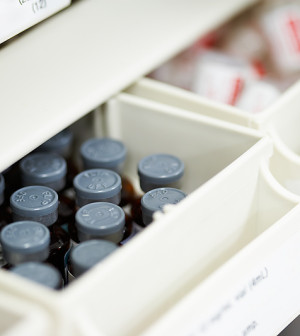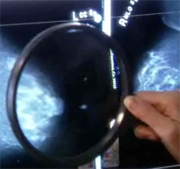- Could Your Grocery Store Meat Be Causing Recurring UTIs?
- Are You Making This Expensive Thermostat Error This Winter?
- Recognizing the Signs of Hypothyroidism
- 10 Strategies to Overcome Insomnia
- Could Artificial Sweeteners Be Aging the Brain Faster?
- Techniques for Soothing Your Nervous System
- Does the Water in Your House Smell Funny? Here’s Why
- Can a Daily Dose of Apple Cider Vinegar Actually Aid Weight Loss?
- 6 Health Beverages That Can Actually Spike Your Blood Sugar
- Treatment Options for Social Anxiety Disorder
Herceptin Best for Certain Breast Cancer Patients, Study Says


Herceptin is the best drug treatment for a type of breast cancer called HER2-positive and should remain the standard of care for that type of tumor, according to new findings from a long-term clinical trial.
HER2-positive breast cancers tend to be more aggressive than other types of breast cancer, according to the Mayo Clinic.
For the study, more than 8,300 patients in 44 countries received either Herceptin (trastuzumab) or Tykerb (lapatinib) in addition to standard chemotherapy.
After 4.5 years of follow-up, 14 percent of patients who took Herceptin and 18 percent of those who took Tykerb had at least one disease “event” — breast cancer recurrence anywhere in the body, a new cancer, or death from any cause.
Heart safety was rated good for both groups of patients. And there was no difference in the rate of cancer spreading from the breast to the brain, study co-chair Dr. Edith Perez, director of the Breast Cancer Translational Genomics Program at the Mayo Clinic in Florida, said in a Mayo news release.
The findings were scheduled for presentation in Madrid, Spain, at the annual meeting of the European Society for Medical Oncology, which concludes Tuesday.
The patients in the study are still being followed.
Data and conclusions presented at meetings are typically considered preliminary until published in a peer-reviewed medical journal.
More information
The U.S. National Cancer Institute has more about breast cancer treatments.
Source: HealthDay
Copyright © 2026 HealthDay. All rights reserved.










